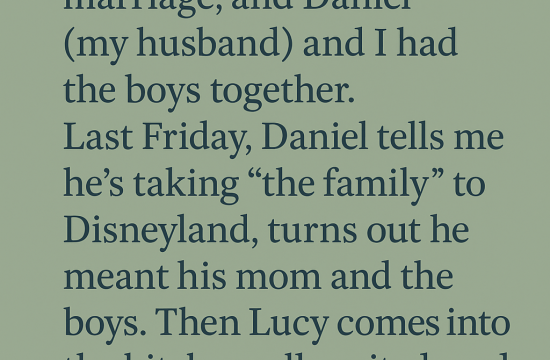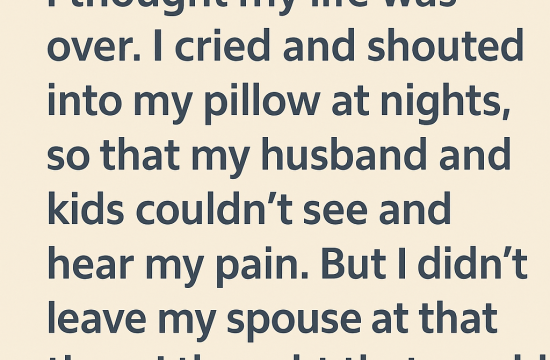It sounds like you found yourself in an incredibly hurtful and frustrating situation, where you felt excluded and disrespected by your husband and his family. It’s understandable that this experience would leave you deeply wounded, especially given the assumptions your mother-in-law made about your background and your husband’s failure to stand up for you.
First and foremost, it’s important to acknowledge that your feelings are valid. You were disrespected—not only by being excluded from a family dinner but also by the insinuations about your manners and class background. That kind of judgment is not only unfair but also damaging to your sense of belonging. It’s completely reasonable that you removed yourself from a situation where you were being treated poorly.
Walking away, rather than escalating the confrontation, showed maturity and restraint—even if your husband didn’t recognize it as such. His reaction—calling you “unreasonable and ungrateful”—completely missed the point of why you were upset. He may have been embarrassed that his family’s behavior reflected poorly on him, but that doesn’t excuse dismissing your pain. In a healthy relationship, a partner should advocate for the other, especially when unfairly targeted by family members.
The concerning part is that instead of standing beside you, he tried to justify their behavior. That choice didn’t just invalidate your feelings—it weakened the foundation of trust between you. To heal this rift, communication with your husband is essential. He needs to hear, in clear terms, how the exclusion made you feel and why you left. He also needs to understand that you weren’t being “ungrateful” for the trip, but rather reacting to feeling belittled and unwelcome. His silence and inaction were part of the hurt, and acknowledging that is crucial if things are to improve.
When it comes to your in-laws, the situation becomes more delicate. Their actions and judgments are beyond your direct control, but your husband plays a vital role here. He needs to set boundaries with his family to ensure they treat you with the respect you deserve. Ultimately, you and your husband are supposed to be a team, and disrespect toward you is also disrespect toward the marriage itself.
The real question is whether your husband is willing to see things from your perspective and take steps to protect and honor your place in his life. If he cannot recognize this, the tension will only continue to grow. Couples counseling might be a valuable step if he struggles to understand your feelings on his own. Sometimes an outside perspective can help a partner see what they’ve been unwilling—or unable—to acknowledge.
At its core, this isn’t only about a ruined dinner or a disrespectful comment. It’s about respect, loyalty, and the expectation of support from the one person who should have been on your side. If you and your husband are to move forward, it will require open conversations, mutual understanding, and a commitment to ensure that you are never left feeling excluded or belittled again.











